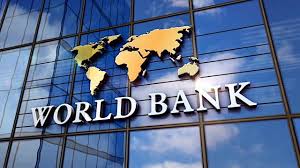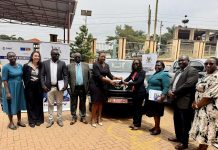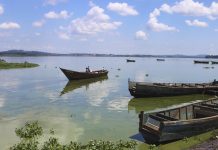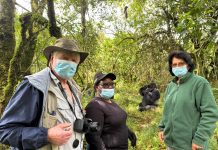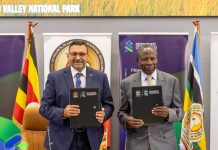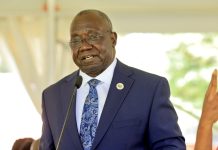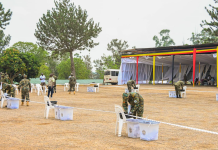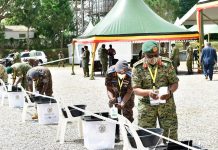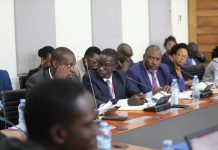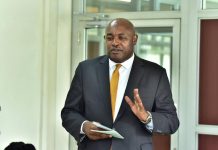The World Bank is committed to supporting the Government of Uganda (GoU) in achieving resilient and sustainable urban development through the innovative Greater Kampala Metropolitan Area Urban Development Program (GKMA UDP). This program, designed to address critical infrastructure and service delivery gaps, leverages the Program-for- Results (PforR) financing modality to strengthen the institutional systems necessary for sustainable metropolitan growth, climate resilience, job creation, and vocational training.
The GKMA, comprising Kampala City and eight metropolitan local governments, is a vital economic hub representing 14% of Uganda’s national population, 40% of the urban population, and nearly half of the country’s GDP. However, rapid urban expansion has exposed significant gaps in infrastructure, particularly in roads, drainage, and solid waste management, that need urgent attention.
Strengthening Institutional Capacity
The GKMA UDP utilizes the PforR approach, which links disbursements to Disbursement Linked Indicators (DLIs) that promote institutional improvements and enhance service delivery across the metropolitan area. This results-oriented financing mechanism encourages participating entities to achieve specific targets, such as developing robust metropolitan coordination frameworks, improving local revenue generation, and increasing service delivery capacities.
By enhancing the institutional capacity of local governments, the GKMA UDP ensures better planning, coordination, and management of urban infrastructure and services. This, in turn, supports the development of
sustainable, climate-resilient infrastructure that mitigates flood risks, improves mobility, and promotes environmental stewardship.
The World Bank’s $566 million contribution to the GoU’s program is directed through three key funding windows:
1. Institutional Support Grants (ISG): $30 million for institutional strengthening to improve governance, coordination, and management systems (DLI 1).
2. Metropolitan Development Grants (MDG): $518 million to fund critical infrastructure investments, such as rehabilitating roads, enhancing drainage systems, and improving solid waste management (DLIs 2-8).
3. National-level Institutional Strengthening Grant: $18 million to support policy and institutional framework improvements at the national level, ensuring a cohesive approach to urban development (DLI 9).
Additionally, the Agence Française de Développement (AFD) may coо- finance €40 million to Window 2.
Focus on Climate Change Adaptation, Mitigation, and Job Creation
The GKMA UDP aligns with Uganda’s climate change commitments by emphasizing adaptation and mitigation through resilient urban infrastructure and sustainable practices. In addition to roads construction, key program investments, such as stormwater drainage rehabilitation, green space development, and waste management strategies, are designed to reduce the metropolitan area’s vulnerability to climate-related shocks. The program also supports non-motorized transport and sustainable mobility solutions, reducing greenhouse gas emissions and promoting cleaner, greener urban spaces.
In addition to climate resilience, the program promotes job creation and vocational training by developing artisan parks, markets, and business centers, as well as providing workspaces for small and medium-sized enterprises (SMEs). These initiatives aim to enhance local economic opportunities, improve livelihoods, and build a skilled workforce that can contribute to sustainable urban growth.
Since its effectiveness in December 2023, the GKMA UDP has completed the Year 1 (2023-24) work plan, the results will be verified by the Independent Verification Agency in late September for disbursement. The Program is set to launch key infrastructure projects in Kira and Mukono Municipalities, with other projects in the Kampala Capital City Authority (KCCA) and additional entities to commence in the coming months. Community engagement remains a core focus, ensuring local ownership and participation in building a more resilient and sustainable metropolitan area.
We are pleased to partner with the Government of Uganda to build a resilient and climate-smart Greater Kampala Metropolitan Area. The use of the PforR modality allows us to focus on achieving tangible results that strengthen coordination among local institutions, deliver sustainable urban infrastructure, and foster economic growth, while also advancing climate change adaptation and mitigation efforts.
The World Bank remains a committed partner in Uganda’s urban development journey with the Government of Uganda and the citizens of the Greater Kampala Metropolitan Area.


